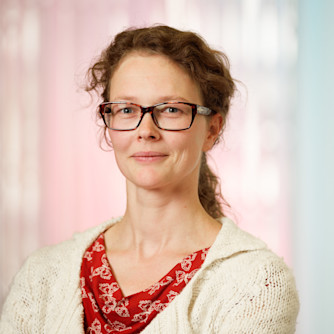RTD 1: Getting a grip on Research through Design
Evaluating RTD Methodology
- PERSONAL EXPERIENCE
- THE HUMAN TOUCH
- KEY ENABLING METHODOLOGY
- EXPO
In 2016 nine design projects within the programme ‘Research through Design’ started to explore the nature of design as a research method. After two years the projects are coming to an end. Join the project leaders in exciting round table discussions on the merits of doing ‘research through design'! Artefacts from the different projects will be at the heart of this conversation and dedicated exhibition. The ‘Research through Design’ programme is funded by NWO and SIA.
A selection of project leaders and researchers involved in one of the RTD projects form a panel and will reflect on a theme regarding ‘research through design’. During an interactive discussion the audience can join in the discussion with their questions and remarks.
Topics
Evaluation of RTD methodology regarding:
- Differences between disciplines
- Scale levels and types of products
How do these two aspects above relate to the number of RTD iterations necessary, the amount and types of testing methods necessary, involvement of stakeholders, etc.?
Research Through Design Projects
Smart clothing for thermal control of the human body
New and innovative solutions for clothing which can actively control our body temperature are created by combining different heating and cooling technologies with sensors and actuators, while integrating these in new smart clothing prototypes.
Resourceful Ageing
This approach moves away from the idea of the elderly as frail, passive and technologically incompetent, a sterotype that underlies much of today’s healthcare technology. Instead, this project promotes a view of the elderly as being extremely capable of creatively dealing with the everyday challenges they encounter as they age.
Double Face 2.0
Few architectural works draw aesthetic advantage from technical aspects; technology is often seen as a constraint limiting creativity rather than inspiring principles that become part of the design identity. With the design of the novel type of Trombe wall system, we aimed to combine a high technical performance witht its engineering performances, demonstrating the value of an integrated design identity.
Symbiotic Machines for Space Exploration
Symbiotic Machines for Space Exploration are autonomous structures that will make a meaningful contribution to the stabilization of endangered ecosystems, conservation of biodiversity and creation of a new environment, focusing on environments with a huge concentration of carbon dioxide.
Beyond the Current
Many design solutions are produced without paying much attention to the architectural and cultural heritage quality, as well as not researching consumer preferences and means. These aspects are of increasingly important when designing non-row housing, particularly in the larger cities. This proposal aims to generate design solutions for the deep renovation of representative parts of the more complex housing stock, to increase both energy efficiency and architectural quality.
Mycelium-based materials for product design
How can we improve and standardise the technical and experiential qualities of naturally grown, mycelium materials? Depending on the chosen combination of fungal culture, substrate and post-treatment, a range of mycelium-based materials embedding different properties can be created, demonstrating the wide applicative potential of responsible bio-fabricated materials and highlighting the pivotal role of designers as agents of change.
Really cooling water bodies in cities
Urban heat problems will be exacerbated and peak rain fall will increase: these predicted climate problems need to be resolved quickly. By studying configurations of shading, evaporation and ventilation objects around bodies of water, we can improve ‘human thermal sensation in cities’
Tools to Support Thinking about Personal Futures
Local government, service providers, and individuals are increasingly expected to be responsible for their own futures. In this project, newly developed tools will enable individuals to create images of their own future, and use these when discussing and developing their options, arrangements, and plans, either alone and/or with personal and professional relations.
Participatory City Making
This new city making process is not only about bringing various disciplines together that address urban developments, but foremost seeks to establish a collaborative effort of defining a new way of working between professional designers, academics, policy makers and citizens.






